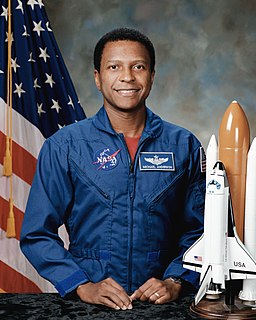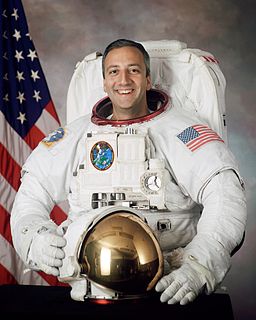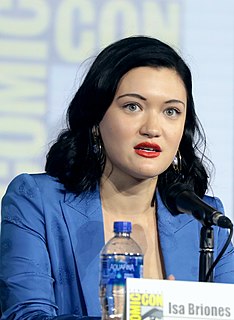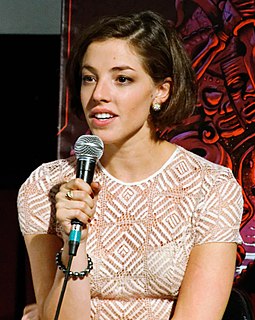A Quote by Ronald D. Moore
When I grew up, I saw the moon landing, and I was fascinated watching them as a child, and that's what really turned me onto space and science fiction, and I started watching things like 'Lost In Space,' and that led me to 'Star Trek,' which was a major influence on my life.
Related Quotes
It shouldn't be so difficult to determine what a planet is. When you're watching a science fiction show like 'Star Trek' and they show up at some object in space and turn on the viewfinder, the audience and the people in the show know immediately whether it's a planet or a star or a comet or an asteroid.
I was an eight-year-old kid when I watched the first Apollo Moon Landing way back in 1969 and there was something about that moment that really stuck in my head. I'd always been interested in space and flying and I was building model rockets and model airplanes, but something about that moment, I can remember like it was yesterday watching the Apollo Lunar Lander approach the surface of the Moon and then later watching Neil Armstrong and Buzz Aldrin take the first steps on the Moon, and something that day started the dream for me that, hey, I want to be like those guys.
The fact that I do place music at the end of my films is not to accentuate the emotion. It serves an opposite purpose which is to remove them from the emotional space and allow them to enter a space of thinking, because I believe that when the audience is watching the film they're watching it with their feelings.
I was the first person to tweet from space, but now every astronaut tweets from space and does Instagram and Snapchat and Face - they have Facebook going. I think it's more of a personal relationship they have with space now. They see it as more obtainable than me watching my superhero Neil Armstrong and Buzz Aldrin walking on the moon. It's like, there's no way I can do that.
Literary science fiction is a very, very narrow band of the publishing business. I love science fiction in more of a pop-culture sense. And by the way, the line between science fiction and reality has blurred a lot in my life doing deep ocean expeditions and working on actual space projects and so on. So I tend to be more fascinated by the reality of the science-fiction world in which we live.
I don't think I'm the world's most die-hard sci-fi fan, but I definitely grew up watching 'Star Trek' religiously - all of them: the original, 'Next Generation,' 'Deep Space Nine,' 'Voyager.' I think sci-fi has an important place in the cinema world. Fantasy is a big part of why films actually exist.
Most of what I do is science fiction. Some of the things I do are fantasy. I don't like the labels, they're marketing tools, and I certainly don't worry about them when I'm writing. They are also inhibiting factors; you wind up not getting read by certain people, or not getting sold to certain people because they think they know what you write. You say science fiction and everybody thinks Star Wars or Star Trek.
Women watch and say, 'I like watching you control your own space. It's motivated me to do better, to go back to college, to even try law school. My daughter's been watching you since she's 10 - I love the fact that she's watching a strong woman who's in control.' All of those things are good, positive things.



































